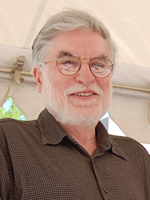Deepak Kapur
Contact
Kapur@cs.unm.edu
Phone: 505-277-1581
Fax: 505-277-6927
Physical Address
Room
3140
Farris Engineering Center
Building #
119 on the UNM map
Mailing Address
01 1130
1 University of New Mexico
Albuquerque, NM 87131-1070

Distinguished Professor
Department of Computer Science
Personal Website
Curriculum Vitae
Education
PhD, Computer Science, MIT, 1980
M. Tech., Computer Science, Indian Institute of Technology, Kanpur, India, 1973
B. Tech, Electrical Engineering, Indian Institute of Technology, Kanpur, 1971
Biography
A distinguished professor at UNM since 1998, Kapur served as chair of the Department of Computer Science from Dec. 1998 to June 2006. He has adjunct appointments at IIT, Delhi, India, as well as Tata Institute of Fundamental Research, Mumbai, India. From 1980-1987, he was on the research staff of General Electric Corporate Research and Development, Schenectady, NY. He was appointed tenured full professor at the University at Albany, SUNY, and Albany, NY, in 1988, where he also founded the Institute for Programming and Logics. He has had research collaborations all over the world including TIFR, India; MPI, Saarbrucken, Germany; Chinese Academy of Sciences, Beijing; IMDEA, Madrid, and UPC, Barcelona; Naval Research Lab, Washington. He serves on the editorial boards of numerous journals including the Journal of Symbolic Computation and Journal of Automated Reasoning, for which he also served as the editor-in-chief from 1993-2007. Kapur is on the board of United Nations University-International Institute for Software Technology as well as LIPIcs: Leibniz International Proceedings in Informatics. Kapur was honored with the Herbrand Award in 2009 for distinguished contributions to automated reasoning.
Teaching Interests
- Programming Languages, Semantics
- Formal Methods and Automated Reasoning, Symbolic Computation
- Mathematical Foundations of Computer Science, Computational Logic
Research Interests
- Formal Methods, Program Verification, Program Analysis, Programming Languages.
- Automated Reasoning, Term Rewriting, Unification Theory, Decision Procedures.
- Symbolic Computation, Resultants, Groebner basis Computation.

